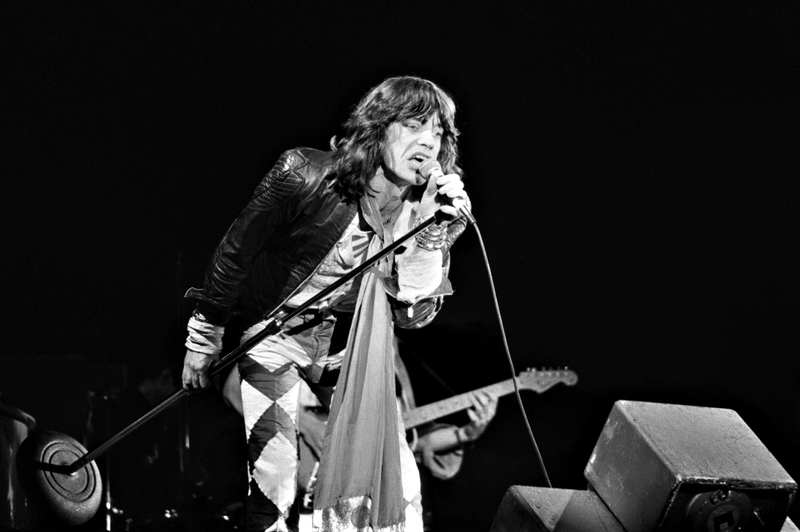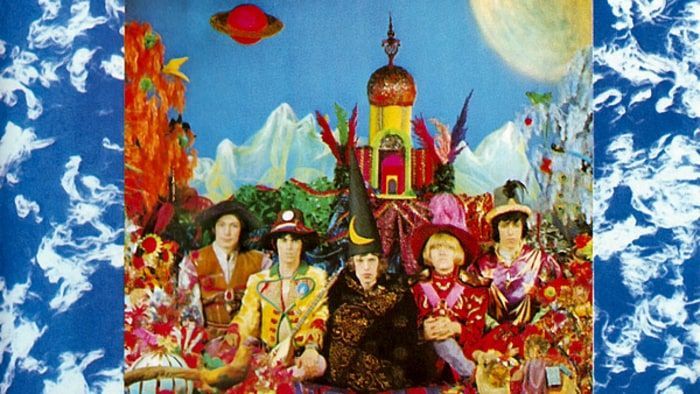You may be wondering to yourself: I thought Mick Jagger was famous for his moves? The truth is, no, not really. Unless you count doing what I’ll call “The Stork Walk” as a bitchin’ new mosh.
Though, to be fair, you might think that because of that song by that band “Who Shall Not Be Named.” You know the one, they hail from the lower layers of Hell. In fact, if I remember correctly, in Italian author Dante Alighieri’s seminal work “The Inferno,” Satan, in the lowest pits of hell, is munching on Judas, Brutus and Adam Levine’s stupid shirtless body.

So, with that out of the way, I’d like to point out what Mick Jagger is really known for, at least in my own version of the world.
Yeah, he was the lead singer of one of the more influential bands of the formative years of rock music. And yeah, they’re definitely still around, making music (kinda), and singing songs about pill-popping mothers and the Devil in between club soda and Cialis cocktails.
But, at least for me, his greatest contribution to rock music was being one of the weirdest, duck-walkingest entities to ever oogle the camera in a circus tent. (Yeah, that happened.)
And it’s in that weirdness that I think he provided maybe his best contribution to the burgeoning genre he helped burst wide open.

Don’t get me wrong, I am going to make fun of Mick Jagger a lot in the ahead article, but only because I love him and everything he stands for. Namely, that he stands for being utterly weird and somehow being one of the coolest human beings to grace the face of the Earth for the latter half of the last century.
I mean, this was a man, in the early ‘60s, who had already embraced androgyny well before T. Rex, David Bowie, The New York Dolls and the rest of the ‘70s glam rock scene was kicking around the slums of New York with Lou Reed in black eye makeup.
Without Mr. Jagger we wouldn’t have Ziggy Stardust and his Spiders from Mars, nor, arguably, the Queen headbanging scene in “Wayne’s World.”
The Rolling Stones are arguably one of the bands most responsible for the genesis of all that is rock music.
But more than that, at least for me, they were INCREDIBLY weird and that is immensely more powerful and enduring. It gave people (people like me) the courage to be weird and know that that could also be its own form of “cool.”

In fact, “cool” as a slang term for being, well, cool, didn’t even come along until right around the time rock music did. So, in some ways, you could make the argument that the Stones made a deviation from the norm one of the main elements of cool.
So, with that out of the way, I’d like to point out one of Mick Jagger’s greatest and most overlooked quirks: his penchant for using ludicrous accents.
It’s the oft unmentioned, oft forgotten tool with which Mick pushed music forward, whilst reaching back into its past, shining a mirror to its faults and moving forward.
You see, The Stones, like most of the British Invasion era rock music found their seed in early American blues, folk and other forms of Americana/early country music.

So, it was quite common for him to don an exaggerated American, more specifically Southern-American accent, while singing various folk or country influenced songs. Quite possibly the best example of this is on the Stone’s 1978 album, “Some Girls,” in which Mick does THE WORST caricature of a country-western singer I have ever heard in “Far Away Eyes.”
Mick even does some redneck spoken word “poetry” at various points in the song. It’s immediately funny, but it’s also a subtle satire of the genre, as Mick sings about religion and perfectly parodies the weird, exploitative nature of early rock music and the African American community. As most musicians, such as Jerry Lee Lewis and Elvis built their careers off of stealing from early African American performers.
In other words, The Stones poked fun at the genre they helped build by mocking the people they stole from in the States, while also being tongue-in-cheek enough to mock themselves.
And like all great satire, it could’ve been slotted in with any number of country music stations and very few people would’ve picked up on it.

The Stones were always eager to satirize themselves and their contemporaries, even taking a shot at the biggest band of their time with the ‘67 album “Their Satanic Majesties Request” which, with its more experimental flourishes and familiarly Sgt. Peppers-esque cover was an obvious parody of The Beatles seminal work.

Mick also used, according to a Hazlitt article by Linda Besner, a fake cockney accent, making him sound, more working class than he actually was. According to the article, several famous British people have used this “mockney accent” as a way to fit in with the populace.
As Besner writes, “usually doing it to express some kind of solidarity between themselves and a historically underprivileged sector of society,” it was a way for The Stones to inject into the culture their messages, many of which lampooned the status quo and helped to bring about the revolutionary nature of the ‘60s.
Mick himself grew up in Dartford, Kent, England to a middle-class family, and both his father and grandfather were teachers.

Though, he wrote songs for the common folk, quite literally ending an album with a song entitled “Salt of the Earth” in which he literally sang a ballad for the working class.
One of his most explicable, and maybe least intentional accents was that of the strange quasi-German/Austrian accent that he uses in the spoken word section at the end of their 1980 song, “Emotional Rescue.”
Nothing is written on this accent. Seriously, I’ve looked multiple times over the years and come up with no reasonable explanation, nor any explanation at all as to why he used that accent.
Like, seriously, it’s almost as if nobody’s noticed that the lead singer of one of the world’s biggest rock bands suddenly started musing about being a “knight in shining armor” while LITERALLY sounding like “Funky Dracula.”
It’s insanity. At some point somebody needs to write a dissertation on this. Or at least for my sanity, somebody needs to ask him WHY HE SUDDENLY STARTED TALKING LIKE KLAUS KINSKI in the middle of a pop single. Seriously, world, I put this to you. Figure that out, I can’t die not knowing.
Maybe it’s a mystery we’ll never solve. Maybe that’s the point, right? Maybe it doesn’t matter. Maybe the genius that is that madman just suddenly decided that the best way to break into the ‘80s pop scene was to adopt an accent from central Europe.
I mean, it worked for 99 Luftballons. Why wouldn’t it work for the original cook of rock and roll? Maybe the point was just to be weird. That has been his schtick since the tunes started falling “out of their heads,” hasn’t it?
The Rolling Stones aren’t my favorite band. Not by a long shot. But I do appreciate, more than anything, the way that they found ways to push rock forward in ways that other bands couldn’t.
They weren’t as bombastic as The Who. They weren’t the button-downed, inventive pop craftsman that The Beatles were. They were, well, just kinda weird. They had an attitude, and they embraced all of the things that made them unconventional, and in doing so, bizarrely enough, their style became the norm.
Without the absurdity that they pioneered we probably wouldn’t have a lot of the terrible bands that tried so hard to be them. We also wouldn’t have scores of great bands that they inspired.

Imitation is a form of flattery, they say, even if that imitation sounds like somebody from the middle of England trying his best to do a southern accent and failing miserably, much to our enjoyment.
Richard Foltz
Managing Editor

